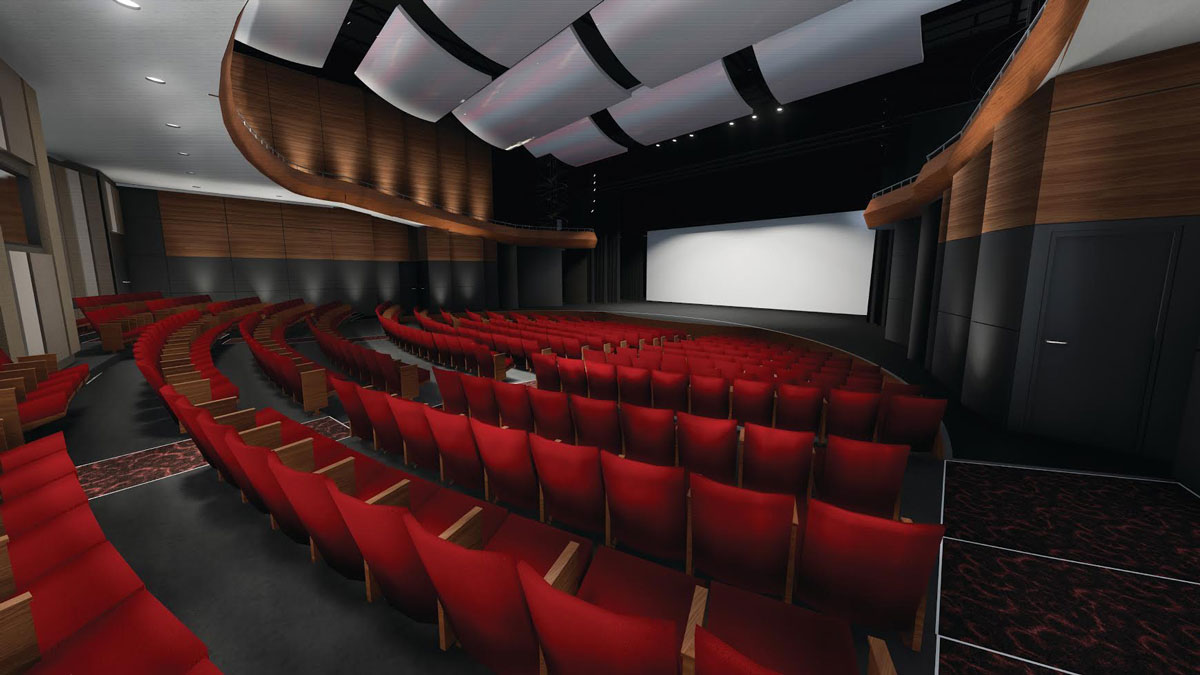SU hopes to raise fees to renovate student spaces
Proposal of the potential fee follows the failure of the Student Events Initiative in March
 Supplied
Supplied The Students’ Union is developing a new plan to improve deteriorating student spaces on campus using money from student fees.
The SU and Students’ Council are debating between two student fee options to generate revenue for the renovation and improvement of student spaces on campus. The amount by which student fees may rise, and whether Augustana and Campus Saint-Jean students will be included in the fee, has not been determined.
Once an option has been chosen, students are expected to vote on the student fee in the upcoming SU elections this March.
One option, called the “Your SUB” fee, aims to raise money only for use in renovating spaces within the Students’ Union Building (SUB), including the ageing Myer Horowitz Theatre.
A second potential option, called the “Student Spaces” fee, will raise funds for the creation and renovation of any non-academic spaces such as cafeterias and study spaces across North Campus and Campus Saint-Jean.
SU vice-president (operations and finance) Emma Ripka said the reason behind the potential fee raise is to prevent the SU from accruing deferred maintenance debt like the university.
Over the last several decades, the University of Alberta has accumulated nearly $1 billion in deferred maintenance costs due to ageing building systems, and the use of poor quality materials during construction in the post-war period.
“The university’s $1-billion deferred maintenance debt is a great example of where the SU does not want to be,” Ripka said. “To avoid that we want to be proactive, that’s why this conversation is happening now and not in 10 or 20 years.”
During the Students’ Council meeting on September 11, a range of comments were shared regarding the two proposed options. Several councillors, including arts councillor Robert Bilak, said they liked the “Student Spaces” fee which would allow for the renovation and creation of new student spaces across campus.
“Many of the [arts] buildings we have are not totally loved by all the students,” Bilak said. “I think the SU and the university teaming up together might be a really positive and efficient way to fix some of the problems.”
Other councillors said they would not approve of any plan unless students had the choice to opt out.
“Regardless of the fee type, for myself and for a lot of the people in my faculty, I think they would only support such fees if they were opt out-able by students,” said Nathan Sunday, a native studies councillor.
Renovating the Myer Horowitz Theatre
The two student fee options being discussed both serve as alternatives to the Student Event Initiative (SEI) which failed to secure a majority vote during the SU election last year. The SEI would’ve introduced a new $16.50 fee to fund renovations to the Myer Horowitz Theatre in SUB and grant funding for student group events.
The referendum lost by five per cent of the vote, with 49 per cent against and 44 per cent in favour.
Raising SU revenue by increasing student fees will help facilitate the renovation of the Myer Horowitz Theatre for which maintenance costs have become a financial burden, Ripka said.
“Replacing and repairing parts of the older technology [in the Myer Horowitz Theatre] is difficult and expensive,” Ripka said. “This drives maintenance costs up, and as a result, rental fees go up making it inaccessible [to students].”
By renovating the site and reducing maintenance costs, Ripka said the SU wants to convert the theatre into a “hub for student activity” and allow student groups to utilize the space for events.
Ripka added that an improved theatre will also generate increased rent revenue that the SU could use to better fund student services like Week of Welcome or the Peer Support Center.
Creating a plan for students by students
Ripka said part of the reason the SEI failed last year, was due to poor student consultation and a weak campaign. In an SU survey conducted in April, 66.5 per cent of students who voted against the SEI said they were unclear of the initiative’s benefits and would’ve liked to learn more prior to the election.
To avoid a similar outcome this year, Ripka said the team will be working throughout the semester consulting with both the Students’ Council and directly with students.
Ripka said the team will begin engaging the wider student population through a survey to be distributed in October. Students will be recruited to lead the consultation process and organize the election campaign once the option is decided in January.
“Consultation will always be super important,” Ripka said. “Regardless of options we propose, we will always balance operational needs with student desires. If students have ideas we haven’t thought about, like a movie theatre in the basement of SUB, we will pursue those too.”




